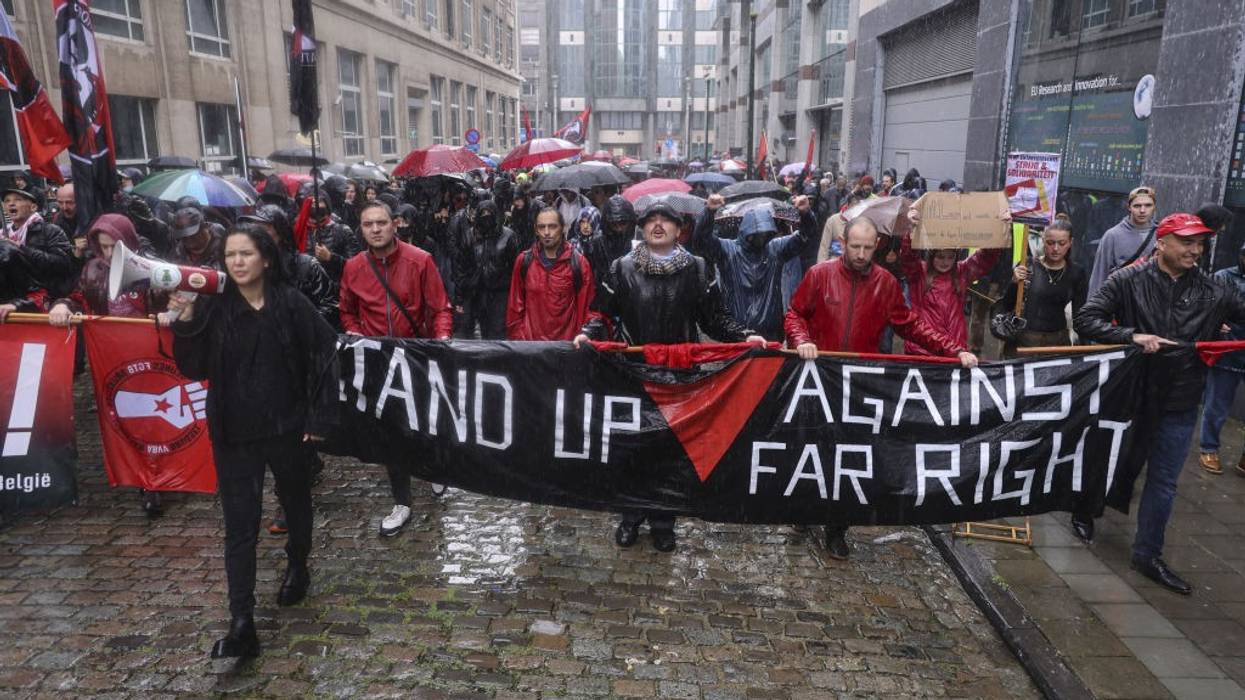On May 21, 2023, elections were held in Greece and the conservative New Democracy party of Prime Minister Kyriakos Mitsotakis scored a landslide victory, trouncing Syriza by 20 percentage points. However, the new electoral system of proportional representation that had been introduced under the former prime minister and Syriza leader Alexis Tsipras prevents New Democracy’s 40% vote to win an outright majority of the 300 seats in parliament. Mitsotakis had revealed all along that he is not interested in sharing power, so a second election is going to take place in late June where the winning party needs to achieve just 37% of the popular vote.
It was abundantly clear to any unbiased observer that Syriza’s inner circle consisted of people who were dedicated to the pursuit and maintenance of power rather than bringing about radical change.
The scale of Syriza’s defeat in the parliamentary elections of May 21 (lost all but one of the 59 electoral regions in Greece) may signify the end of the road for the party of Alexis Tsipras. The party’s demise has in fact been underway from the very first weeks that Tsipras took office as Greece’s prime minister. Lack of experience in governance, ideological confusion, severe structural constraints, but also crude political opportunism and broken promises pretty much guaranteed that Syriza’s downfall was just a matter of time.
First, the radical-in-name-only Syriza party formed a government with the right-wing and xenophobic party Independent Greeks. There were deep disparities of all sorts between the two parties, but obviously this did not matter to Tsipras since he saw forging an alliance with right-wingers as a necessary tactical move to secure power. And power was all that ever mattered to Syriza’s leader and his inner circle. During the 2023 election campaign, Tsipras would leave many leftist voters flabbergasted by courting voters from the neo-Nazi party Golden Dawn.
Second, Tsipras signed an agreement to extend the austerity measures imposed on Greece by the euro masters, only a few weeks after coming to power.
Third, Syriza’s leader gambled on Greece’s future with a sham referendum in order to save his government from collapse and then went on to betray an entire nation that voted overwhelmingly against the continuation of austerity by signing a new bailout agreement that continued Greece’s status as Germany’s “de facto colony.”
Tsipras called the new bailout agreement “a necessary choice,” though he had engaged in ferocious attacks against his predecessors for having signed similar bailout agreements with the international creditors.
More than 40 Syriza MP’s spoke against the new measures, and half of Syriza’s central committee sided against the new agreement. But none of this mattered. Syriza had very weak democratic structures, no real links with the Greek working-class, and Tsipras had total authority over party decisions as most policy issues were decided in unofficial meetings with people close to the “great leader.” Moreover, Syriza as a party had lost its autonomy once it gained power and “was subsumed into the state.”
Indeed, it was abundantly clear to any unbiased observer that Syriza’s inner circle consisted of people who were dedicated to the pursuit and maintenance of power rather than bringing about radical change. Subsequently, following his government’s capitulation to the euro masters, Tsipras took steps to rebrand the party as a “progressive” political force and begun to tap into the legacy of the Pasok party, one of Greece’s center-left political parties, and to emulate more and more the political persona and political tactics of its charismatic founder and former Prime Minister Andreas Papandreou, who, incidentally, also appeared on the Greek political scene as a radical who made exorbitant promises to the people, such as socializing the economy, modernizing the countryside, terminating membership in NATO, and shutting down U.S. military bases in Greece.
Since the end of the Second World War, sadly enough, the Greek left has been betrayed by its own leaders on multiple occasions. The end result of Syriza’s abandonment of radicalism was defection on the part of hundreds of thousands of mostly working-class voters, though its metamorphosis into a mainstream political party attracted many center-left voters to its ranks.
In the 2019 legislative elections, Syriza still managed to gather 31.5% of the popular vote, losing just less than four points since its last victory in 2015, but the conservative New Democracy party not only won and secured a comfortable majority of 158 out of 300 seats, but had a remarkable 11-point increase from 2015.
Moreover, unlike Tsipras’ “leftist” government, Mitsotakis' conservative government kept many of its campaign promises and handled some foreign policy crises rather effectively. For example, Mitsotakis kept his promise to cut taxes, including a 22% cut to an unpopular property tax introduced during the first bailout agreement, suspended the value added tax on new construction, and reduced the insurance costs of employees and businesses.
Big capital and the middles classes have been the main beneficiaries of Mitsotakis’ efforts to rejuvenate the Greek economy. Because of the pandemic, Greece’s gross domestic product (GDP) contracted by 9% in 2020, but grew by 8.43% in 2021 and by 5.91% in 2022. Tourism contributed greatly to the strong rebound in GDP, and the economic prosperity of Greece remains strongly tied to the development of tourism.
However, Greece’s current accounts deficit increased substantially in 2022, mainly due to the worsening of the balance of goods. And the government debt-to-GDP ratio stood at 171.3% at the end of 2022, which is really at unsustainable levels, though the mainstream press in Greece would not devote space to presenting gloomy economic data ahead of the elections.
But it’s doubtful that doing so would have made any difference. The truth of the matter is that there is an impression among many Greek voters that the Mitsotakis’ government has stabilized the economy, protects the national interest more than adequately, and that it would be suicidal to have Syriza back in power after all its broken promises and flimsy statements made about the economy by key party members during an election campaign, which included a proposal for “local complementary currencies” by the party’s former minister of finance and which came only a few days after Yanis Varoufakis (rightly or wrongly, one of the most unpopular political figures in all of Greece) had called for the adoption of a parallel currency “Dimitra.” Syriza’s shaky position on key issues of national security was also a major drawback for many voters.
Indeed, it seems that what lies at the heart of the 2023 Greek legislative election results is that many voters were distrustful of Tsipras and his politics. This is most likely why so many voters appeared unfazed by revelations of a major surveillance scandal that engulfed the conservative prime minister himself. Mitsotakis’ New Democracy government is made up of right-wing conservatives and even includes in its ranks a couple of high-ranking officials with a history of involvement in far-right politics, but it seems that voters were more concerned with Syriza’s own deficiencies rather than those of the ruling conservative party.
Voters also delivered “a crushing defeat” to Yanis Varoufakis’ MeRA25 party as it failed to cross the 3% threshold to re-enter parliament.
Among left-wing parties, only the Greek Communist party performed better, gathering 7.23% of the popular vote over 5.3% in 2019.
In sum, the future of the left in Greece looks anything but promising at present. With the revival of Pasok, which had been in steep decline electorally since 2012 but managed to get 11.46% of the popular vote in the 2023 legislative elections, Syriza’s long demise may be complete a few years from now. And it will be very difficult for the current Communist party to climb into double digits even if Syriza returns to the dark days of securing low-to-mid single digit votes.
But the Greek left has suffered many crippling blows in the past and always finds a way to resurrect itself, to rise like a phoenix from the ashes. Because as long as exploitation, injustice, and extreme inequality remain central aspects of human society, there will always be a need to create a radical vision for the future.




